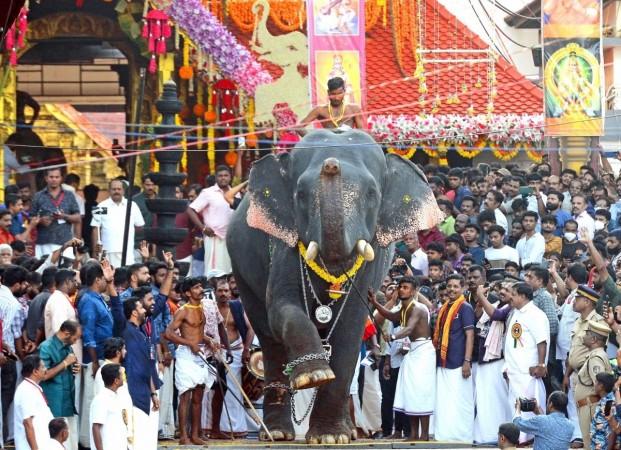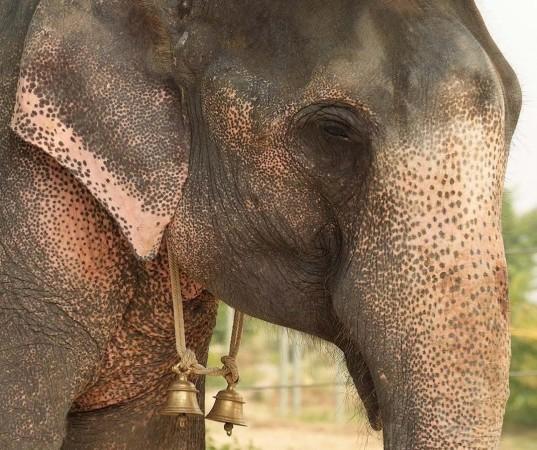
The Kerala High Court has ruled that the use of elephants in the temples in the states under the pretext of tradition and religion is a "commercial exploitation" without any care or concern for their well-being and issued directions to ensure that the animals are not subjected to any cruelty.
The court made this observation while considering a batch of writ petitions for the prohibition of cruelty against captive elephants in Kerala by their parading and exhibition in temples and festivals.
"We do not believe that there is any essential religious practice of any religion that mandates the use of elephants in festivals. We do not, however, propose to say anything more at this stage since our focus now is merely to regulate the practice of parading elephants during festivals...In other words, the animal is treated as a tradable community with its owner or custodian being concerned only with commercial returns. Reportedly, the festivals in Kerala are now so commercialised that even before a festival, there is a war or a sort of competition amongst temple committees tasked with the conduct of festivals regarding the number of elephants being paraded as well as the fame of particular elephants/elephants being paraded," it said.
It has been found out that between 2018-2024, 160 captive elephants have died, the court said.

"There is no greater proof of the fact that captive elephants are being exploited for commercial gains mindless of their well-being than the statistics of captive elephant deaths in the state of Kerala for the years 2018-2024 which indicate that nearly 33 per cent of the total number of recorded captive elephants (being 509 in the year 2018) have died during this short period of seven years. Thus, there has been a significant reduction in the captive elephant population in the State."
Looking into all aspects, the court issued orders that from now on, festival organisers must submit applications with all the relevant details before the authorities concerned at least one month prior to the festival.
The application must include routes of the procession where elephants are paraded, the venue, a health/fitness certificate stating that elephants are not sick or injured, and details regarding the 'musth' period with a certificate from a veterinary surgeon.
Further the court also directed the authorities concerned that they should ensure that elephants must get a rest period between two exhibitions which will not be less than three days besides the exhibitors have to ensure that elephants are given sufficient food, a continuous supply of potable water and a temporary tethering facility which is clean and spacious.
Among the other conditions that have to be strictly adhered to include elephants must not be paraded on public roads between 9 a.m. and 5 p.m. and they should not be transported between 10 p.m. and 4 a.m.
*"No elephant shall be made to walk for more than 30 km a day for the purpose of transportation. All transportation above 30 km shall be made by vehicle approved for the purpose. The transportation of the elephant shall not be made for more than 125 km in a day by any means. No elephant shall be transported for more than six hours in a vehicle in a day and the speed of the vehicle shall not exceed 25 km per hour while transporting an elephant," the court ordered, adding that officials of the Motor Vehicles Department shall ensure that speed governors are fixed on all vehicles engaged in the transport of elephants and that the maximum speed setting is set at the limit fixed above.
It also directed that elephants must get at least 8 hours of rest during a continuous period of 24 hours.
Another significant point is that the court has prohibited the usage of capture belts or other crude and inhuman methods of capturing elephants that may run amok or otherwise misbehave
(With inputs from IANS)













!['It's not Mumbai traffic, it's air traffic': Suriya apologises to Mumbai media after paparazzi yelled At Him for making them wait for hours [Watch]](https://data1.ibtimes.co.in/en/full/806234/its-not-mumbai-traffic-its-air-traffic-suriya-apologises-mumbai-media-after-paparazzi.jpg?w=220&h=138)



